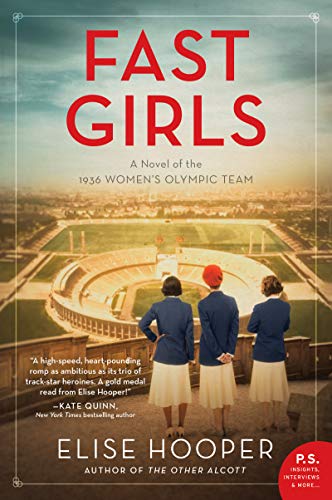Fast Girls
In 1928, 16-year-old Betty Robinson of Chicago represents the United States as a member of the first women’s Olympic track and field team. Her gold-medal win in the 100 meters thrusts her into the national spotlight and leaves her hungry for the next Olympics. But a horrific accident derails her hopes for the 1932 games, and she must fight just to walk again.
Meanwhile, in Missouri, young Helen Stephens, gangly and awkward, dreams of escaping her family’s failing farm and her father’s constant criticism. Near Boston, Louise Stokes, one of only a few black girls in her town, dreams of her own Olympic glory but faces constant racism designed to prevent her from outshining her white competitors.
These three women, along with others, converge on the 1936 Olympics in Berlin determined both to crush Adolf Hitler’s dream of German athletic victories and to prove to the world that women belong on the track.
Hooper has delivered a stunning, multi-layered gem of a novel. With stark frankness, she illuminates the racism, sexism, and homophobia of the era. Yet, while the three protagonists are often victimized, they never allow themselves to become victims. Nor does the novel ever devolve into cattiness or man-hating. The women have their disagreements, but never forget that they are a team. Many men, including the International Olympic Committee chairman, infantilize the women, but many others support them unconditionally, using their societal power to help these athletes achieve the recognition and respect they deserve.
Hooper could easily have taken the stories of these three real-life women and written a white-washed book that merely congratulated America on its triumphs over the Germans in 1936. Instead, she did the hard work to show the full story as it was: nuanced, complex, messy, and beautiful. Readers will be richly rewarded.










